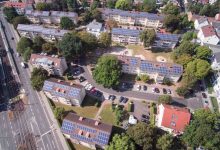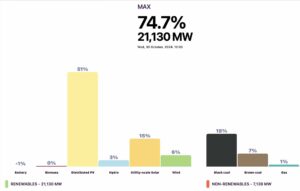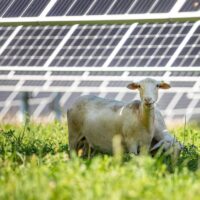Despite a strong performance over the past two years, Germany’s solar sector is facing declining demand and a weakening market, leading to major cutbacks among photovoltaic companies.
Berlin start-up Zolar and Swiss solar manufacturer Meyer Burger have both announced major job cuts due to waning business and shifts in strategy, according to media reports.
Zolar, which sells and installs installations to homeowners, plans to lay off some 200 employees – half of its personnel – due to falling demand for rooftop PV systems, Handelsblatt reported. Zolar CEO Jamie Heywood told Handelsblatt that after two boom years, 2024 is “pretty tough.”
The company aims to phase out its business of selling solar systems to homeowners and focus on services for local installers.
Production company Meyer Burger is likewise reducing the global number of its employees by some 200, from 1,050 to 850, including jobs in Germany, Tagesspiegel noted.
The company said it was streamlining its entire corporate structure, reducing personnel in Europe but planning to increase its presence in the U.S. Meyer Burger plans to maintain its cell production site in Saxony, however.
The downturn has already resulted in a number of plant closures and bankruptcies in the sector, reported Handelsblatt. The Berlin-based company Eigensonne filed for bankruptcy last December.
It was taken over by Amia Energy, which then also filed for bankruptcy in early May. Leipzig-based Envoltec, which specialises in the installation of solar plants, likewise went under earlier this year.
Similarly, PV company Enersol in Baden-Württemberg announced it would close its operations in October, saying it could no longer work profitably.
A number of factors are behind the downturn, said Handelsblatt. Demand for PV systems on private homes has fallen sharply as concerns over high electricity prices have gone down since the height of the energy crisis, but also due to higher interest rates and declining purchasing power.
For European manufacturers, falling prices for solar modules have made it difficult to compete against international rivals, especially Chinese modules.
This article was originally published on Clean Energy Wire. Republished here under a “Creative Commons Attribution 4.0 International Licence (CC BY 4.0)” . Read the original version here.










